| An enticement of new federal money hasn't yet furthered Democrats' efforts to finally get Medicaid expansion in every single state. But one state — Oklahoma — will become the first to start pocketing the extra dollars provided by Congress. Its voters had already decided to expand the health insurance program before the incentive money was ever on the table. Oklahoma's Medicaid expansion goes into effect today.It's been a full year since voters approved a ballot question altering the state constitution to expand Medicaid, bucking nearly a decade of opposition from GOP governors. Starting today, Oklahomans earning up to 138 percent of the federal poverty level (about $36,000 for a family of four) can sign up for SoonerCare, the state's Medicaid program. 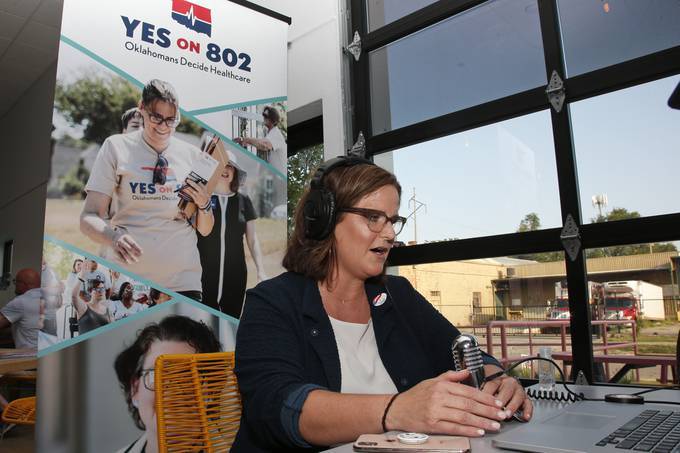 Amber England, campaign manager for Yes on 802, awaits results in a vote in 2020 on whether to amend the state constitution to expand Medicaid. (Sue Ogrocki/AP) | This makes Oklahoma the 39th state with Medicaid expansion, the fifth to approve it at the ballot box — and an outlier among southern states, who have largely rejected expansion although the federal government covers 90 percent of the costs for the expansion enrollees. It's a big deal for the Biden administration, which has made Medicaid expansion one of its top priorities. So it's not surprising that Health and Human Services Secretary Xavier Becerra will pay a visit to Oklahoma today to mark the occasion. Accompanied by Chiquita Brooks-LaSure, administrator of the Centers for Medicare and Medicaid Services, he'll meet with Cherokee Nation leaders and officials in Tulsa, according to a Department of Health and Human Services news release. Oklahoma voters didn't even know extra federal funds would be on the table when they voted to expand Medicaid.The ballot question came nine months before they were provided through the American Rescue Plan that President Biden signed in March. In return for expanding Medicaid, states can pocket a 5 percent increase in federal payments for their traditional enrollees — an enticement Democrats hope will bring more states on board. The extra funds last just two years; if Congress didn't extend the funding, the federal match would go back to previous levels. But the immediate rewards are tangible: Oklahoma will get $860 million more in federal funds over two years, the Center on Budget and Policy Priorities estimated. 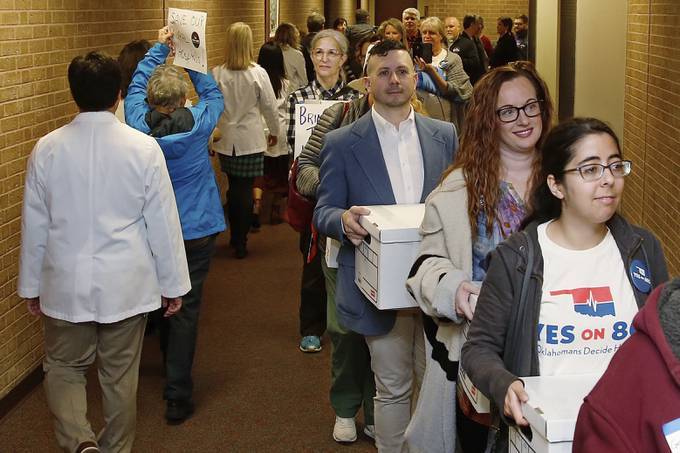 Supporters of Yes on 802 call in October 2019 for Medicaid expansion to be put on the ballot in Oklahoma. (Sue Ogrocki/AP) | Missouri could collect even more extra money.But there, the story of Medicaid expansion is fraught, as state legislators earlier this year refused to carry out the intent of voters. The state approved a ballot initiative last year to expand Medicaid. But the state legislature still had to provide the state part of the funding, and the Republican-led House and Senate didn't include it in a budget bill signed in May by Gov. Mike Parson. Parson had previously proposed funding for the expansion in his budget proposal. But he ultimately notified the Centers for Medicare and Medicaid Services that his administration was withdrawing its plans to expand the program over the lack of dollars. "I think I've been pretty open all along about that," Parson told reporters at the time. "I didn't support it originally. But when the people of this state voted for it, I put it in the budget. I think that was my job as the governor. But I also think the priority is the legislature has to fund it. There's no other way around that. So when they simply didn't do that, there weren't a lot of choices left." Several state residents filed a lawsuit to force Missouri to go forward with expansion — but that hasn't worked so far. Last week, Circuit Judge Jon Beetem ruled that the ballot initiative didn't actually require the state to appropriate funds for expansion. The case will next go before the Missouri Supreme Court. 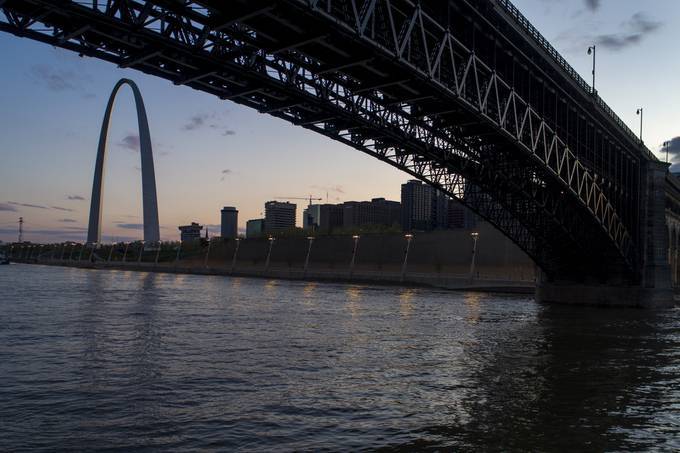 The Mississippi River in St. Louis, Mo. (AP Photo/Jeff Roberson) | If Missouri never ends up expanding Medicaid, it will miss out on considerable federal funds.Even before Congress hung a carrot with the incentive funds, expanded Medicaid may have been budget-neutral for Missouri or even saved money, according to an analysis by Washington University in St. Louis. That's for two reasons: The federal government would cover most of the cost for the new enrollees, and some expensive patients the state was already paying for would be switched to this expansion population. But now Missouri is eligible for an extra $1.15 billion from the incentive funds, which means that over the next two years the state would definitely benefit financially from expansion. The situation has led to deep frustration by advocates, who had worked hard to get the Medicaid question on the ballot only to see their plans derailed. "Passage of the American Rescue Plan Act has made it quite clear that Missouri can accomplish Medicaid expansion without additional state expenditures," the National Health Law Program said in a statement yesterday. "We strongly urge the court to respect the will of the voters and ensure that the state expands its Medicaid program." | 





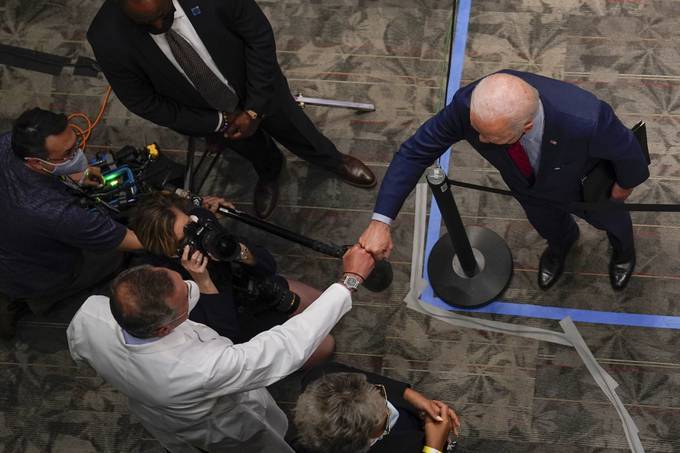
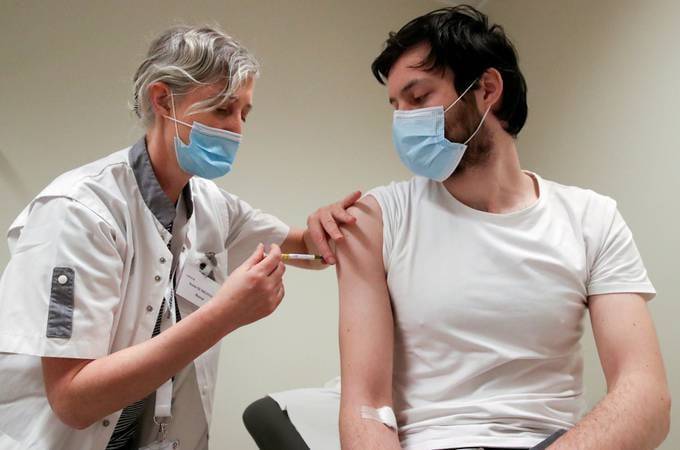

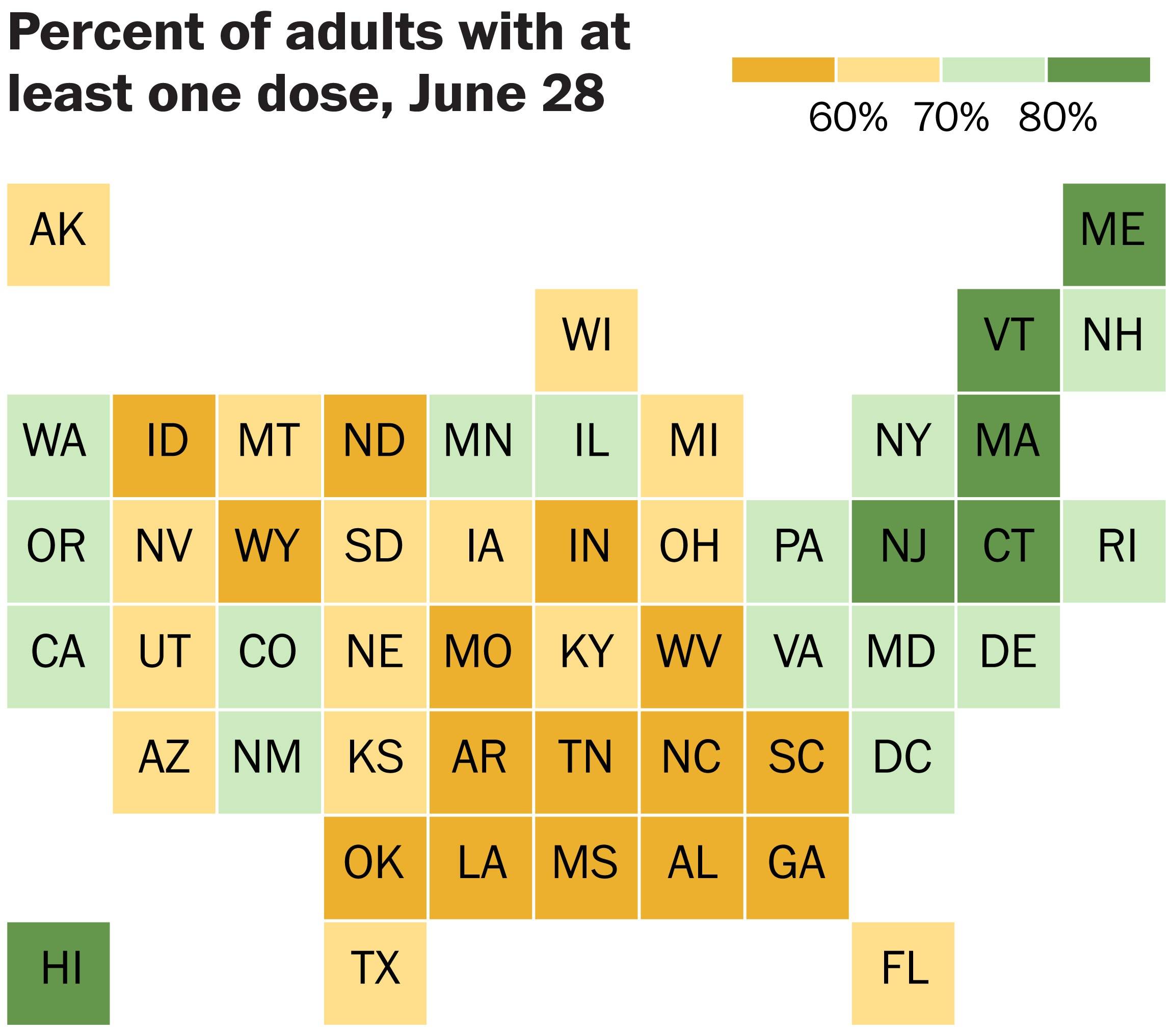


No comments:
Post a Comment